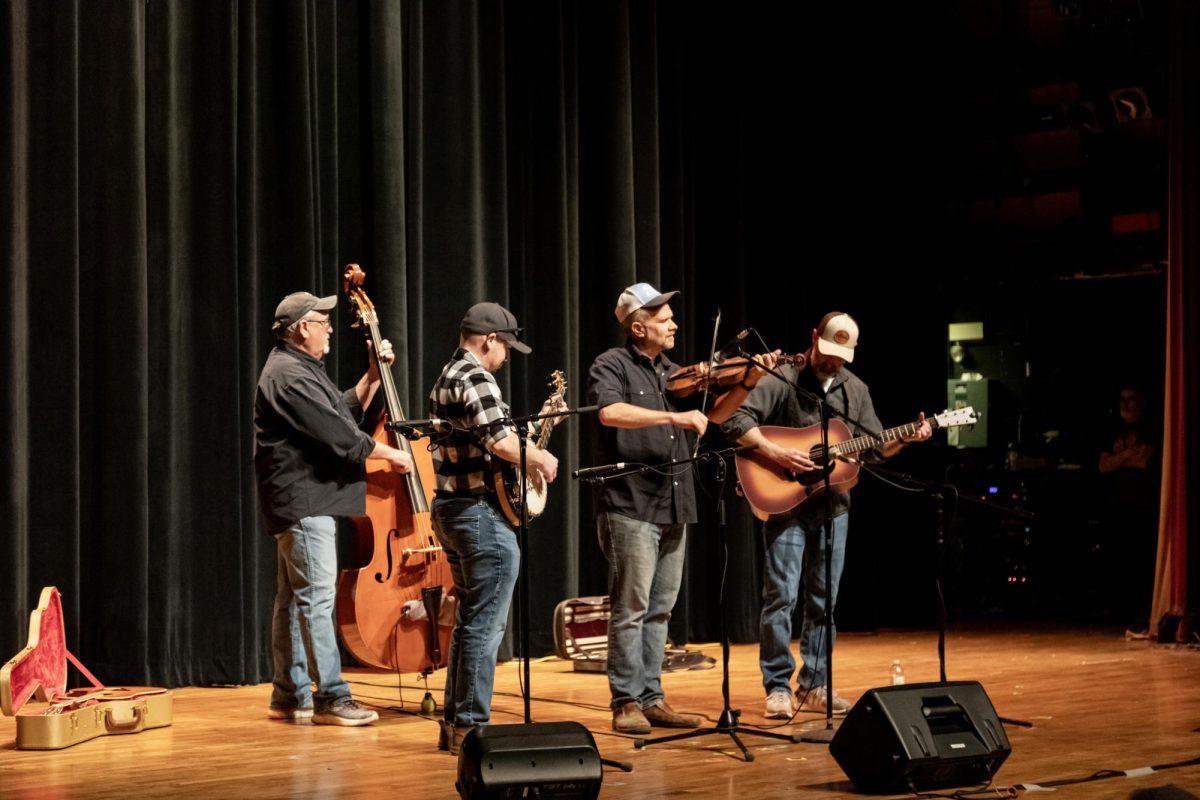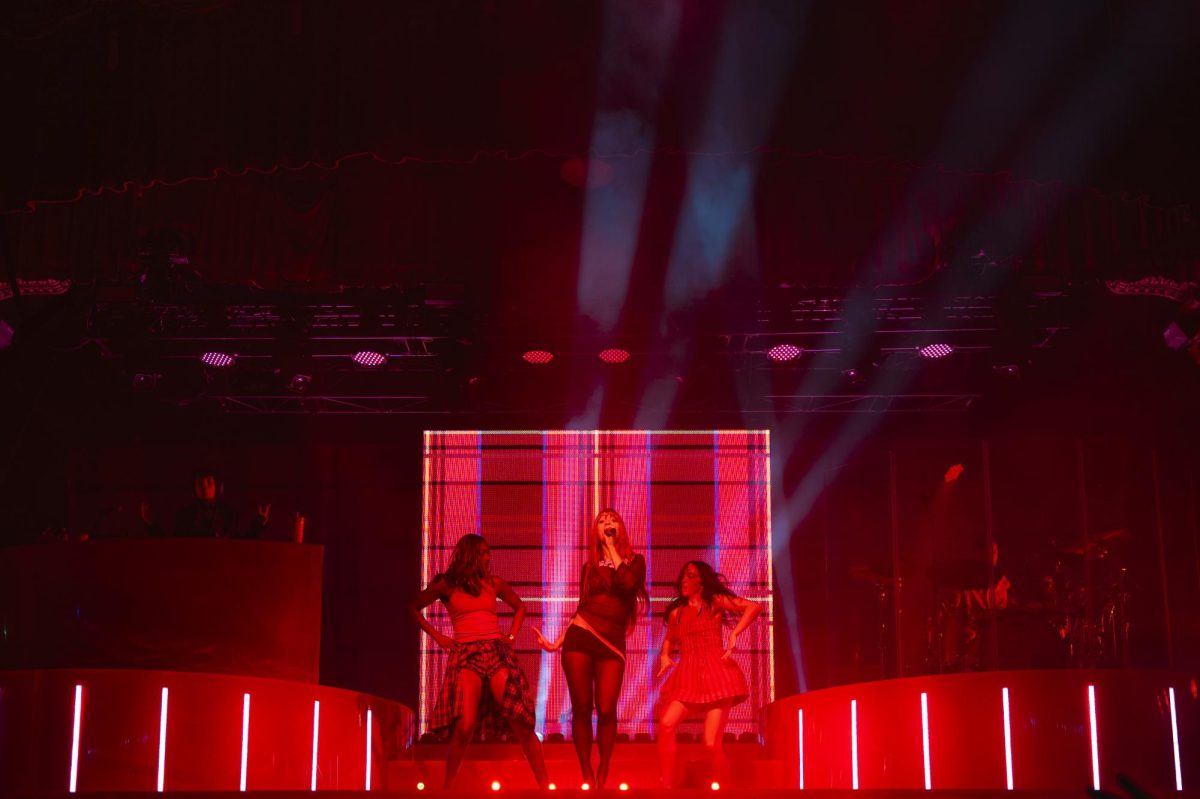You don’t have to be a fan of classical music to know that everything’s coming up Beethoven. December 2020 marks the 250th birthday of the behemoth composer, and performance halls across the world are scrambling to pack even more of his work into programs already overstuffed with it. Luckily for students, the Chicago Symphony Orchestra (CSO) provides $15 tickets for select performances, and last Tuesday, I took this opportunity to watch their Beethoven concert with English pianist Paul Lewis and conductor Sir Andrew Davis.
The program for the concert included two short pieces written for smaller orchestral ensembles by English composer Sir Michael Tippett, and the first and fourth Beethoven concertos. The first half of the concert was surprisingly dull. Tippett’s Little Music for String Orchestra, the first piece in the program, is a drab, neoclassical affair supposedly inspired by Beethoven, but lacking the wit and finesse that characterizes Beethoven’s pieces. As I listened, I could not stop thinking about a time when my dad complained that the orchestral anthem, which played between commercial breaks of Premier League matches, was “a bunch of British bollocks”—he’s Dutch. That just about sums up my problem with this piece: It feels way too British to fully imitate Beethoven’s style.
The Tippett piece was followed by Beethoven’s Piano Concerto No. 1, a piece which I had never really listened to before. Turns out, I wasn’t really missing much. While Lewis’s playing was remarkable throughout—the delicacy with which he handled this over-virtuosic piece was nothing short of phenomenal—the piece itself, composed during a time when Beethoven was renowned for his pianistic abilities and viewed the concerto form as his virtuosity showcase, lacks any real depth or movement. It is fascinating that this concerto is his first officially numbered orchestral work, as it shows Beethoven still very much struggling with the scope of the form. In this piece, he uses the styles of Mozart and Haydn as a crutch, desperately trying to use virtuosity as a voice to detrimental results. Fortunately, Lewis’s tone resembled that of Brendel, my favorite Beethoven interpreter.
Davis’s conducting was equally wonderful, and the dynamic contrast in the orchestra was consistently surprising. The cellos especially stood out with their rich, brilliant tone. Although this was not the best Beethoven piece one could’ve asked for, the performance itself made up for it.
The second half of the concert was what I believe everyone was there for, and it certainly did not disappoint. After the intermission, a small fragment of the orchestra performed Tippett’s Praeludium for Brass, Bells, and Percussion, a more concise and decidedly more mature piece than his Little Music for String Orchestra. As Sir Andrew Davis explained to the audience, the praeludium was originally commissioned by the British Broadcasting Corporation (BBC) as an anthem for their 50th anniversary program. This original purpose, however, is hardly evident. It is dark, deeply thoughtful, and minimalist in its instrumentation. The harmony is also much more forward-thinking, a nice counterpoint to the Little Music for String Orchestra and to those bollocks-y British anthems that we’re all done with.
After the praeludium came the main event: Beethoven’s Piano Concerto No. 4. Once upon a time, this was one of my favorite classical pieces ever written, but I have to admit that it has somewhat lost its effect on me. The moments that used to really hit me are still just as beautiful—just listen to how Beethoven employs winds in the first movement—but the piece as a whole was a little dragged out. This is not at all, however, the fault of the performers. Lewis played splendidly with real depth and nuance in both dynamic and tone. The beginning of the recapitulation in the first movement is one of the highlights of this piece, and Lewis performed it with a delicacy and lightness of touch that I’ve never heard played live before. The second movement was also exceptional, and I found myself in awe of the contrast between Lewis and the strings in the orchestra. The strings played with appropriately refined force, neither too excessive nor too meager. Again, the cello section was phenomenally rich. The third movement, a light and festive affair, had all the character it needed. It perfectly showcased Lewis’s virtuosity, and the evenness and careful attention he pays to each note was exceptionally evident.
While the ludicrous attention that’s being paid to Beethoven—a composer whose repertoire already fills yearly calendars to the point of bursting—might turn some away, it cannot be denied that the CSO makes the most of every piece that they play. While not every piece is an absolute hit, some, like Piano Concerto No. 4, will never cease to be monumental in the classical repertoire. This concert whetted my appetite for a season whose remaining concerts include other tried and true classics—Brahms’s Symphony No. 4 and Mahler’s No. 6 are sure to be absolutely stunning performances—and I know I will be back soon.









